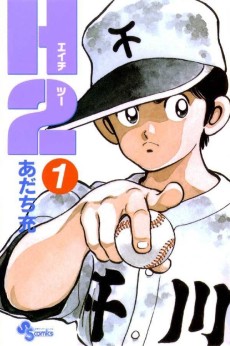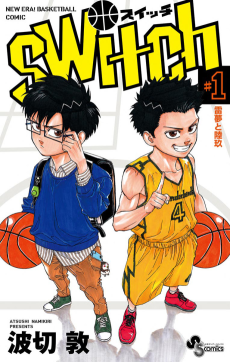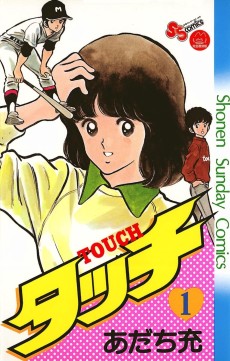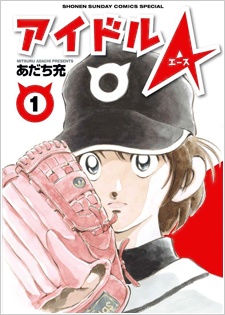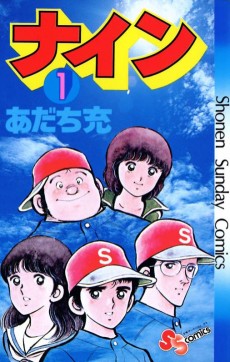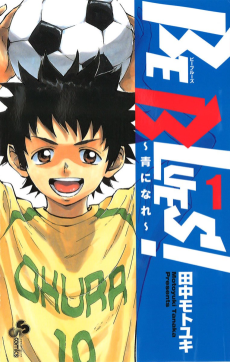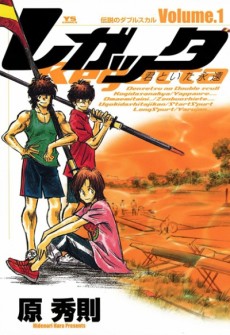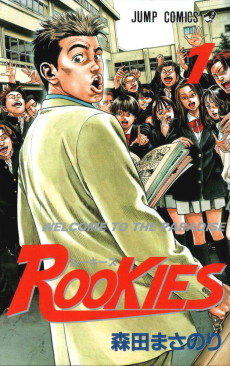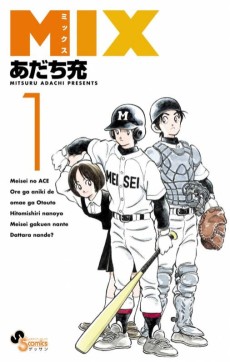CROSS GAME
STATUS
COMPLETE
VOLUMES
17
RELEASE
February 17, 2010
CHAPTERS
170
DESCRIPTION
Cross Game is a moving drama that is heartfelt and true, yet in the brilliant hands of manga artist Mitsuru Adachi, delightfully flows with a light and amusing touch. The series centers around a boy named Ko, the family of four sisters who live down the street and the game of baseball. This poignant coming-of-age story will change your perception of what shonen manga can be.
(Source: Viz Media)
CAST
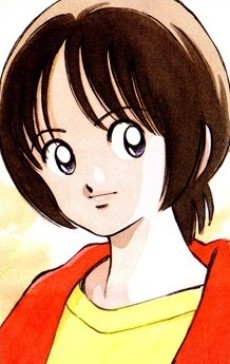
Aoba Tsukishima
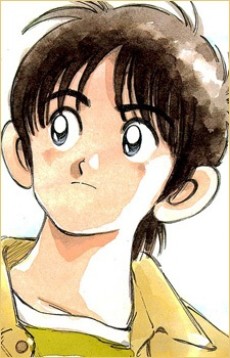
Kou Kitamura
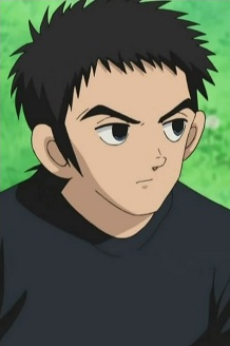
Yuuhei Azuma
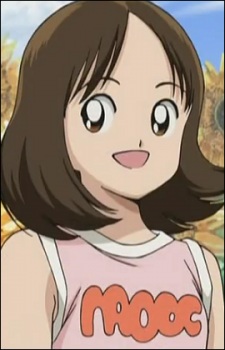
Wakaba Tsukishima

Osamu Akaishi
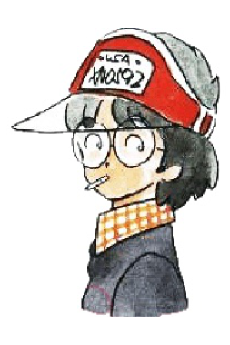
Mitsuru Adachi
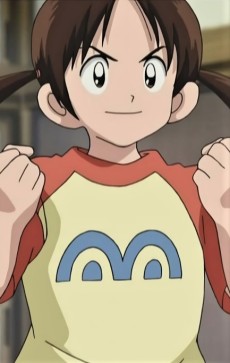
Momiji Tsukishima
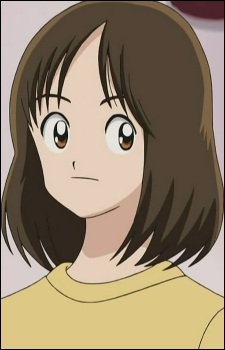
Akane Takigawa

Junpei Azuma
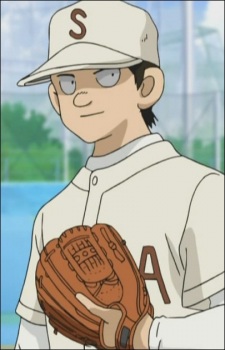
Tatsumasa Miki

Ichiyou Tsukishima

Nomo
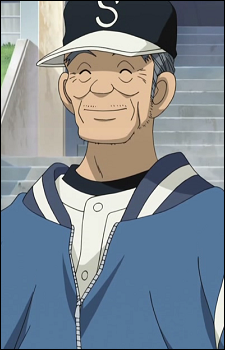
Sentarou Maeno
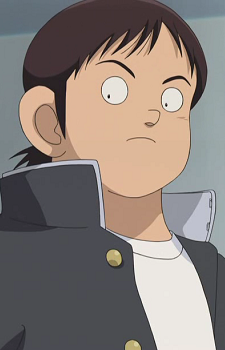
Daiki Nakanishi
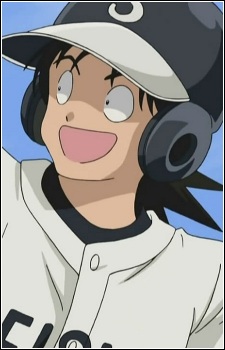
Keiichirou Senda
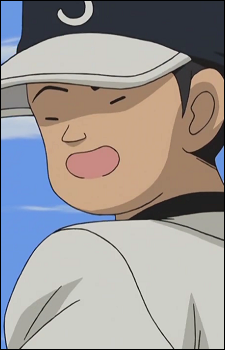
Toshio Miya
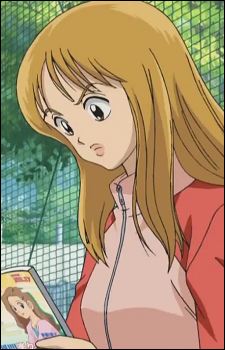
Risa Shidou

Seiji Tsukishima
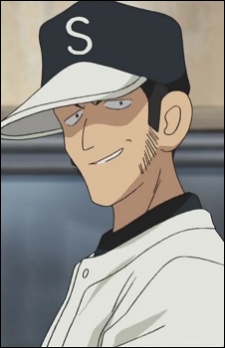
Makihara
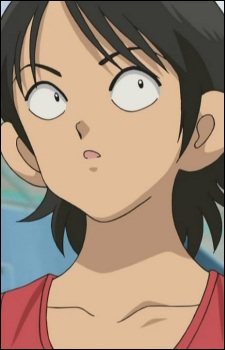
Kyoko Nakagawa
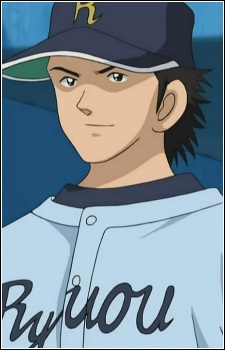
Keitarou Mishima
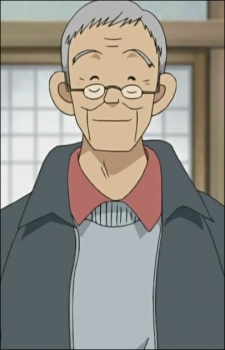
Kikuji Asami
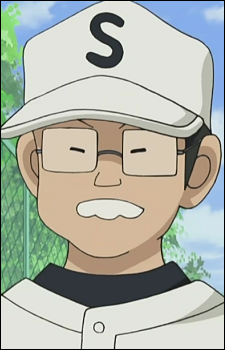
Hama

Kensaku Kitamura

Mitani
CHAPTERS
RELATED TO CROSS GAME
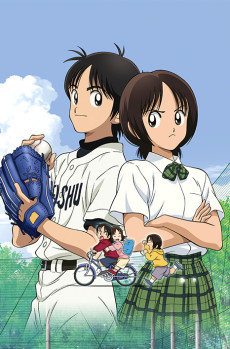 ANIME ComedyCross Game
ANIME ComedyCross GameREVIEWS

IustinMakihige
90/100Really great realations between characters and great journey to readContinue on AniListCross game a manga that i did expect to like it but in the first i didn't like so much that i expected and after some time i like it more than i expected . And this is my review about this manga .
Story
The story isn't so special is a slice of life after all . It sure have some unique traits of story . I really like that manga isn't so much in the baseball games and is more into relation between the characters . The story is definetly good and really interesting in some points . Anyways it will have some baseball games but more important is why the characters are playing baseball and what is their dream which is very good point in the story .The Characters
The characters were really great builded . I really like the relation between Kou and Aoba , another good relations between characters are Wakaba with Akane , Wakaba with Kou , Wakaba with Aoba , Azuma with Aoba , Azuma with Ko , Junpei with Ichiyou and another really good relationship between characters . My favorite character from this manga it is Kou (he really puts effort in his loves interest even if he doesn't look )
I hate Mizuki bc he is just an incel who wants to marry Aoba which is her cousin , but his development is ok . The rest of the cast was really great .Aoba and Kou relationship really grow in very good ways that youu probably will like

The Art
Is clever i really like the art . The volume covers really are very good . The panels are really good not to much special panels but really good .

The Enjoyment
Oh Boy ,Now i need to explain myself my journey with this manga . At first i like it , in the chapter 10-20 i was like isn't so good that i expected but after chapter 40 it was better than i expected and i really like it . I really have a good experience with this manga probably i will look forward to read the mangaka other creations .Overall
is a great manga that you should read if you like slice of life and some emotion in your experience , is not to much into baseball more in the relation between character that are very good and is perfect for person that aren't to much into the sports genre . My mark is 9/10 i definetly recommend this series to all my friends who likes slice of life .
DNSS
100/100Death and bereavement: a celebration of lifeContinue on AniListPreface
I love attributing to myself an importance that I don't have, it's an addiction that corrodes me. There is a common thread that runs through all my reviews, which is my sense of purpose. I don't write about stories I like or dislike, I write about stories that need someone writing about them. Sometimes I find good reviews of good stories, and then I go on my way, satisfied that they've done a good job. Unfortunately for me, this isn't always the case. I'm tired of finding reviews of such low level that their existence is mistaken for a non-existence.I see Cross Game as a incredible story, any review that makes light of its value deserves to be promptly scorned. So, am I a messiah about to illuminate the path of this poor, unrated and underappreciated story? I don't need an answer, I already have one, and it's a big fat NO. A no found not out of false modesty, but simply because of the obvious realization that it wouldn't have to be me, it could be you, or it could be him or her, the choices are endless.
Within a world of possibilities, only the manifestation of what is materialized matters to us, and that's why the one chosen this time is me, by mere chance, the one who enters the right space at the right time. All I hope is to do a good job. Having made our introductions, how about we talk a bit about Cross Game?
__What the hell is a Game of Cross?__ 
First of all, we need to understand our story. I read Cross Game at the beginning of August, almost 4 months have passed, so I can't remember small details precisely. What I can certainly discuss is the theme that haunts me, that compels me to write this review, which, throughout my countless forgetfulness, was something that never left my mind. So you ask me, what struck me about Cross Game? The sport? The baseball? The romance? The comedy? The drama? All that and a bit more, but two things really appeal to me, which will be the focus of this analysis.
Firstly, the sophisticated and mischievous Adachian narrative, which deceives and enchants everyone who reads it. Secondly, the heart of Cross Game, the Grief. I apologize in advance for the many omissions to come. Cross Game is a rich story, with a large, ultra-charismatic cast, with a magnificent romance in the making, and with well-placed comedy. All of this will be omitted from the review, in order to avoid making it even longer. Your task is to discover the small details that this wonderful story has to convey. As for my mission, to persuade you to read Cross Game.
__Adachi's ingenuity __ 
Before we discuss the central theme of grief, I think it's worth highlighting Mitsuru Adachi's macabre ingenuity. There are few artists - and when I say artists, I mean any artistic field, not just comics - who manage to construct such an elusive and perfectly mischievous narrative with such mastery. The aim of our architect of evil is simple: to convey a false sense of unshakeable security, a tranquillity that will very soon be dismantled. The first layer is direct, it's blatant. Wakaba's death highlights the first great diabolical machination, which would not be the last.
Another huge nuisance is the relationship between Kou and Aoba. Throughout the story, we see Kou totally attached to and dependent on Wakaba's death. His life was lived according to Wakaba, and her death didn't change that, it only solidified it.At several points, the story flirted with the idea that this struggle would never be solved, and that Kou's destiny would be to carry this grief in his heart until his last breath. Aoba appears as a perfect mirror, a girl who equally loved her sister Wakaba, but who never understood her dead sister's passion for Kou. Part jealousy, part resentment fuels this relationship, of a boy broken by grief, unable to seek anything beyond it, and a friend who so strongly identifies with him that his response is achieved through hatred and rebellion.
Aoba is unyielding and despises Kou, but we know that all exacerbated hatred is nothing more than unexplored love. The future of these two soon becomes clear, and a romance in the making begins to blossom. Any reader who manages to retain a single digit of neurons can see this from a distance. And our evil ventriloquist is aware of this, so he decides to add a new ingredient to season this salad, we'll call this seasoning Takigawa Akane.
The shock I felt at Akane's first appearance was colossal. Why??? Impossible, why the fuck would you do that? Don't do it, it doesn't make sense, you'll destroy your story, stop it. Wasn't this manga supposed to be about grieving? Wasn't it supposed to be about loss? What do you want to do with this character? What's her purpose? So many unanswered questions, and what's worse, all the possible answers scared me. My hope, which fortunately paid off, was the greater awareness of the tactics employed by the little demon Mitsuru Adachi throughout his story. Distraction, deception, false stillness. Calmness doesn't satisfy him, a non-confrontational narrative doesn't appeal to him, it's always necessary to disturb, to confuse. For what purpose? To sweeten what is bitter, death.

__About death __ It would be convenient to let myself be fooled by Adachi Mitsuru's treacherous machinations, his list of crimes is extensive, bordering on infinity. But I refuse to fall into the trap of the enemy, who distracts me with script features that work for the sole purpose of prolonging his story and diluting the suffocating pain of his thematic. In this decision we are able to observe an inherent merit, its impeccable execution, which even though it is often “dishonest”, ends up serving the theme of the story perfectly, which rises above it, doesn't contradict itself, doesn't get lost and isn't tainted.
The core of the whole theme of Cross Game is certainly not baseball, nor is it the comings and goings of its characters' romances, these resources function as mere tools used for the development of its story, as well as marginal characters who appear to disrupt and confuse the environment, such as Akane and Mizuki. Although they are interesting characters worthy of analysis and although baseball games are great fun, I would be giving them an emphasis that I don't think is necessary, overshadowing the main theme that still consumes my mind when I think of Cross Game. I think it's worth dealing with the grief.

It all starts in chapter 9, the overwhelming surprise we are exposed to, our world turned upside down. We discover here that we're not faced with an ordinary sports story, we're faced with a cruel and heart-wrenching tragedy, about grief, and what's worse, grief from the perspective of children, totally unprepared for the reality of life and death. Every time I go back to read chapter nine, there isn't a single occasion when I don't cry. I remember being emotionally destroyed the first time I read it, and it's no different now, four months later, where I return only to flip through it and be flooded with immense sadness. What Adachi Mitsuru achieves between chapters 9 and 10 is of such raw strength that it cannot be quantified; few stories manage to replicate the feeling of loss in such a suffocating way as the author does here.
We have an initially cryptic and elusive construction, followed by an indirect exposition of Wakaba's death, we find a routine scenario of Kitamura's life practicing with his friends, until he arrives home and hears the news on television. We are not exposed to tears and people screaming in grief, everything happens so quickly and without explanation that the feeling of emptiness is simply heartbreaking.
Adachi's writing is so impeccable that I remember feeling exactly like Kitamura. First, incomprehension, strangeness and agony at not understanding the meaning of it all, why it was happening? How was it happening? This will be an open wound in our protagonist's heart that will take time to heal, that will never be healed, that won't need to be healed. After all, how is a child of only 10 going to cope with mourning his first love? We don't have a clear answer, but we do have an initial direction. Well, we just need to cry.

__An answer to death __ What separates mediocre stories from good ones is their ability to inspire. A good story doesn't just present something, it allows you to think beyond itself. I don't seek in a story a momentary and forgettable sensation, I seek the eternal catharsis that allows me to think about my reality in the face of what I am exposed to. The theme of grief alone supports a whirlwind of thoughts. I have explored Mitsuru Adachi's good execution of the theme of mourning in the previous topics, now allow me to develop a conclusion through what Adachi's own work has allowed me to think about.
Of all possible human fears, death is certainly the most powerful one. Just read Chainsawman. The one universal fear of every human being, the one eternal pursuit common to us all, inescapable, non-negotiable, unavoidable, invincible. How much of your day do you spend questioning your own life, or your inevitable death? How much of your life is spent contemplating your own end?
In my case, very little time is spent on this. They are reflections recreated countless times, and in all of them, I usually come out at peace with myself, through a conformism that willingly accepts the inevitable. There's no fighting what's not in my control. I find myself thinking a lot about my reading of The Myth of Sisyphus by Albert Camus. In trying to be happy in the face of the absurdity of life, of our endless and unrewarded struggle, the only sense I see is that of revolt in search of freedom. I think there is comfort in accepting our lost struggle, seeing purpose in our purposeless existence.
Very different from making peace with one's own death is replicating this exercise with the death of others, even worse, with the death of loved ones. I can still remember the news of my grandmother's death. My mother crying when I got home, my sister on the phone crying while talking to my aunt, all this while I was just getting home from school and receiving devastating news, as if it were just another ordinary day. I remember behaving exactly like Kou, I didn't cry, I didn't get distraught, I just went to my room to stare at the ceiling and digest everything that had happened.
I can rationalize the process of my death with a certain peace and tranquility, but I can't imagine how suffocating it would be to see something similar happening to a close relative. In fact, I can, but I promptly refuse. The feeling I had throughout that week is not a memory that needs to return, but it is a feeling that is unlikely to be the last, I think i have many deaths to observe. I can't think about it, I don't want to think about it, I don't want to think about it.
But what do I do when a scoundrel story about baseball decides to confront me with it? I'm forced to think about it, I'm forced to project myself where I wouldn't want to be, where I wouldn't want to be. The discussion in Cross Game is actually so suffocating that writing about it while seriously reflecting on its theme hurts me. The way a 10-year-old child is exposed to facing grief and going through his entire life because of a loss is shattering. An entire family with no direction, a father who has lost his wife and now his daughter, and who finds his peace only in the distraction of alcohol. These are small splashes of melancholy that the story throws in our faces and which we absorb with contemplative tranquillity. It's a non-real world, where nothing really happened, a place where I can appreciate this suffering, with empathetic sadness for these characters, and with the joy of knowing that they are not real.
From this perspective, I can say that Cross Game is a passive-aggressive work. With magnificent subtlety, it pokes at the biggest wounds, with an enviable calmness that doesn't hesitate to attack what hurts me the most, all within such a calm, harmonious and well-constructed atmosphere that the final sensation is one of peace. Overcome? Forgetting? Live with the pain? What do you do with grief? You can come up with your own answer.
I see grief as the celebration of life, death as proof of our existence. At the end of the journey, in the great reflection on mourning and overcoming it, what we have left in Cross Game is only a great celebration, the joy of being alive, gratitude abstracted in love, and a joy that does not oppose death, but embraces it with its well-deserved optimism. We don't live for those who have gone, we live for ourselves, for the honor of those who have gone.

SIMILAR MANGAS YOU MAY LIKE
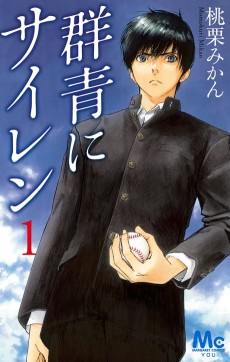 MANGA DramaGunjou ni Siren
MANGA DramaGunjou ni Siren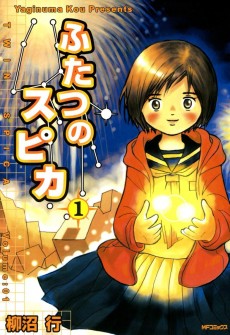 MANGA DramaFutatsu no Spica
MANGA DramaFutatsu no Spica
SCORE
- (4.15/5)
MORE INFO
Ended inFebruary 17, 2010
Favorited by 339 Users


